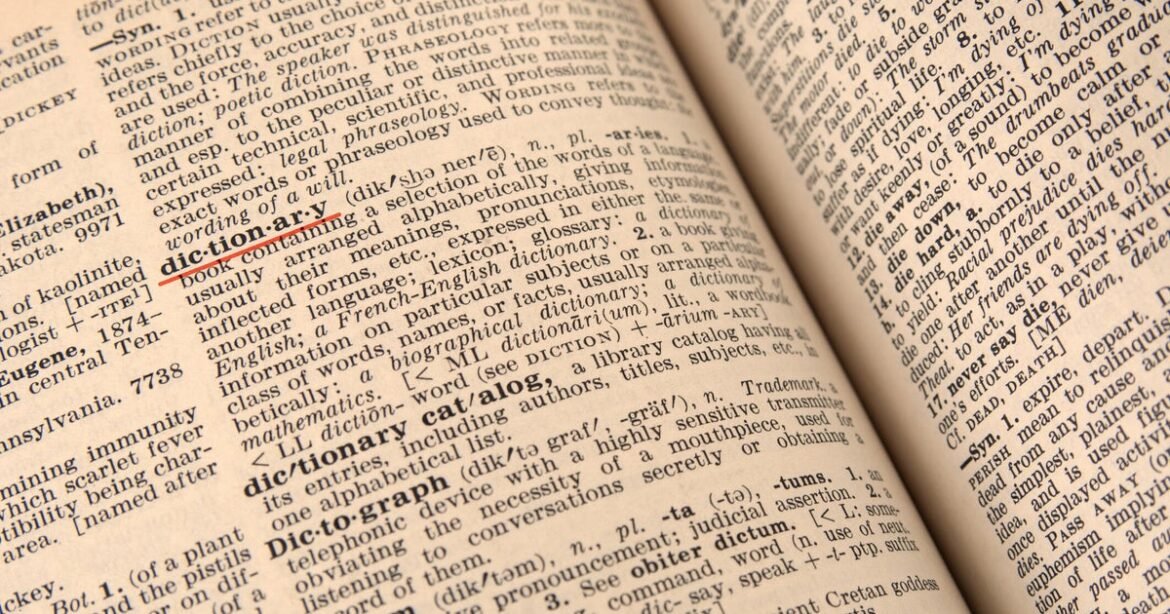Sorry, parents and teachers of middle schoolers: your days of hearing “67” shouted randomly are far from over.
Dictionary.com on Wednesday announced it has chosen “67” — pronounced “six seven,” not sixty-seven — its 2025 Word of the Year.
67 is an ambiguous slang term made popular by Gen Alpha on social media and in schools and friend groups across the country. Its pervasiveness is what stuck out to the team selecting the word of the year, Steve Johnson, director of lexicography for the Dictionary Media Group at IXL Learning, told CBS News.
“Something that you would have thought would have gone away, it just kept on growing larger and larger, snowballing into kind of like a cultural phenomenon,” Johnson said.
Johnson knew they had “something really interesting” when he got a message from his friend, a middle school teacher, early one morning saying, “Do not make six seven word of the year.”
“I was just like, ‘Oh, teachers have found this,'” he said.
Reactions to the term, and its selection as word of the year, are sure to be divided by generation.
“This is really a new generation flexing their linguistic muscles and making a pretty phenomenal impact on the English language,” Johnson said. “That’s something to be celebrated and cheered.”
But for anyone older, “especially ones that have to deal with the shouting of ‘six seven’ out of nowhere on a day-to-day basis, I think there’s going to be a mixture of like groans and a lot of like, ‘Well, this tracks,'” he said.
What does 67 mean?
67 is different from previous words of the year because is doesn’t have a concrete meaning.
“This is really the first word of the year that we’ve had in a really long time that’s actually more of an interjection,” Johnson said. “It’s something that people are just shouting and saying, and that in itself is pretty novel and pretty spectacular.”
Some say it means “so-so” or “maybe this, maybe that,” since it is sometimes said with both palms facing up and moving alternately up and down, but it remains largely nonsensical, the Dictionary.com definition says.
“Because of its murky and shifting usage, it’s an example of brainrot slang and is intended to be nonsensical and playfully absurd,” the dictionary says.
It’s also a group identity marker or symbol of belonging, Johnson said.
“It’s something that’s used to show, ‘I’m part of this generation. This is who I am.’ It’s kind of like an in-group joke,” he said.
The origin of 67
The term originated from a song by rapper Skrilla, “Doot Doot (6 7),” which was then use on video clips of NBA players including LaMelo Ball, who’s 6 feet 7 inches.
“Viral clips on TikTok and Instagram paired the song ‘Doot Doot (6 7)’ with basketball visuals as far back as October 2024,” Dictionary.com said.
It became a meme and continued to spread among young audiences. Just recently, it made it into a “South Park” episode.
For Johnson, he’s watching where the term goes from here.
“What comes next and how long this is, that’s something that you can never predict, and so it’s something that we might have to wait six or seven months to see where it goes,” he quipped.
2025 Word of the Year shortlist
Other words that Dictionary.com considered for the word of the year relate to artificial intelligence, politics and more. Here’s the shortlist:
- Agentic: (of artificial intelligence) capable of acting independently to accomplish a goal or task; acting like a human agent.
- Aura farming: the deliberate cultivation of one’s charisma, style or vibe, often for online attention or social clout.
- Gen Z stare: a blank or unbothered facial expression associated with Gen Z, often interpreted as aloof or disengaged.
- Overtourism: a situation in which too many tourists travel to a popular destination, causing the place to suffer negative environmental, economic and sociocultural impacts.
- Tariff: the schedule or system of duties or customs imposed by a government on imports or exports.
- Tradwife: a married woman who chooses to be a homemaker as a primary occupation and adheres to or embodies traditional femininity and female gender roles, often associated with conservative or alt-right political values.

